Lower Heating Bills in Vancouver Without Losing Comfort
When winter hits the Pacific Northwest, heating becomes a must. Now, just because you have to have your heat on to stay comfortable at home doesn’t mean you need to pay a boatload of cash for it.
If your utility bill spikes every time the thermostat drops, there are some things you can do to stop you from having to choose between warmth and savings.
In this guide, we’ll go over a few small adjustments and strategic upgrades you can make to lower your winter energy costs while keeping your home nice and cozy.
Why Heating Costs Jump in the Winter
Nope, it’s not your imagination. Your bills are actually spiking during the colder months. Why? Well, there are typically a few reasons for it:
With colder outdoor temps, your system has to run longer and more often.
Heat loss through poorly insulated walls, windows, and ducts forces your equipment to work more than it should.
Older systems tend to be less efficient and require more energy to produce the same level of heat.
If your thermostat can’t manage temperatures properly, it might run unnecessarily throughout the day or overnight.
If any of this sounds familiar, it might be time to start looking into the kind of optimal heating Vancouver homeowners are hopping onto.
Use Smart Thermostat Settings to Your Advantage
One of the easiest ways to make your system more efficient is by programming your thermostat properly or to get a smart thermostat.
Set it to lower the temperature by 7–10 degrees while you’re asleep or away from home. According to the Department of Energy, this can shave up to 10% off your annual heating bill.
If you need help optimizing your settings, note that many smart thermostats come with learning modes, mobile apps, and energy usage reports, which make it easier to explore your system and reduce heating costs at the same time.
Pro tip: 68°F is often the sweet spot for comfort and efficiency when you’re home. Anything higher than that, and you’re probably not getting the payoff you imagine.
Regular Maintenance = Better Performance
Want to save money on heating without making any drastic lifestyle changes? Maintenance is where it starts.
Here are a few simple things you can do today:
Change your air filter. You should actually be doing this every 1–3 months. Clogged filters restrict airflow, meaning your furnace or heat pump has to work harder to maintain the desired temperature.
Seal leaky ducts with mastic or foil-backed tape, NOT duct tape. Unsealed ducts can lose 20–30% of your system’s airflow.
Add insulation to your attic, crawl space, or exterior walls to keep warm air inside where it belongs.
These furnace efficiency tips are pretty much the same as tips you’d see to optimize an HVAC system.
Schedule Professional Heating Services
Don’t wait until something breaks. Get a professional tune-up before or during winter. It’ll keep your system operating at peak performance when you most need it. If you haven’t booked one yet this season, now’s the time.
Here’s what a typical furnace or heat pump tune-up includes:
Inspecting and cleaning burners, coils, and heat exchangers
Checking airflow, refrigerant levels, and blower function
Testing thermostat calibration and system controls
Identifying worn parts before they cause breakdowns
A full heating and cooling system check
Preventative care is one of the best things you can do for winter heating efficiency. Plus, it’ll reduce the amount you have to spend on repairs over time and may even extend the life of your system.
Invest in Upgrades That Pay Off
If your system is more than 10–15 years old, it may be time to start looking at upgrades. Newer systems are quieter, more reliable, and drastically more efficient.
Consider replacing your current outdated unit with:
A high-efficiency heat pump
A variable-speed furnace
A ductless mini-split system for zoned control
But what about the upfront investment?
While it may be a lot to swallow for some, it pays off in the end. With a higher-quality, more energy-efficient system, you’ll pay less each month and make fewer service calls over the course of its life.
Plus, you might even qualify for local energy provider rebates or federal tax incentives.
Give our Vancouver heating and cooling experts at Miller’s a call and let us evaluate your home to recommend the best upgrade options.
Don’t Forget Insulation and Weatherproofing
Even if you invest in the most expensive HVAC system on the market, it won’t get the job done if your home isn’t properly sealed and insulated.
Check these areas for proper sealing first:
Attics and crawlspaces: These are often the biggest sources of heat loss.
Windows and doors: Install weather stripping or caulk to seal gaps.
Basements and garage walls: Insulating these spaces can prevent heat from escaping through the floor or shared walls.
Why Miller’s Is the Energy-Efficient Partner Vancouver Homeowners Trust
At Miller’s Heating & Air, we know how to stretch every dollar without cutting corners. We’ve been serving Clark County since 1947, and we specialize in providing energy-saving HVAC tips for local homeowners in the PNW climate.
Let us provide you with an expert assessment of your current HVAC system, honest recommendations, flexible maintenance scheduling, and access to the most trusted brands and rebate-eligible equipment on the market.
It’s our goal to help you build a long-term plan for comfort, cost control, and smart energy use.
Schedule a seasonal tune-up or home energy evaluation with Miller’s Heating & Air today!


